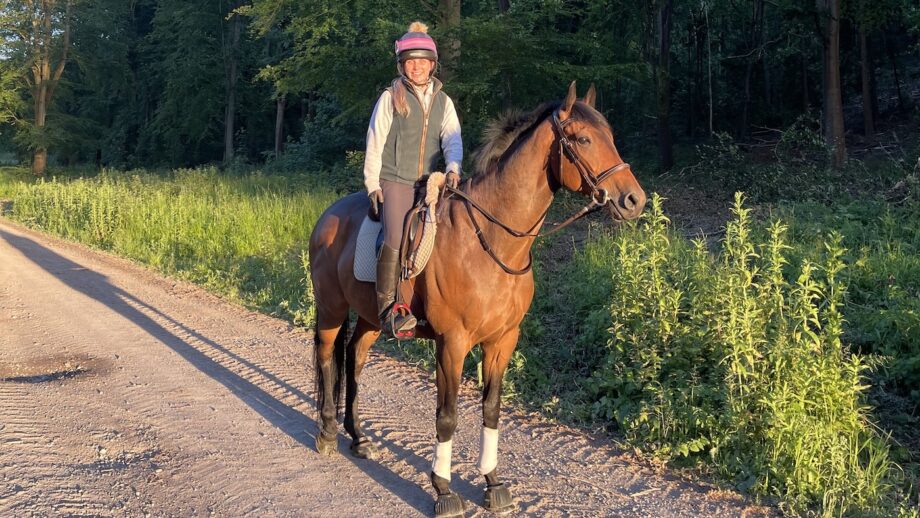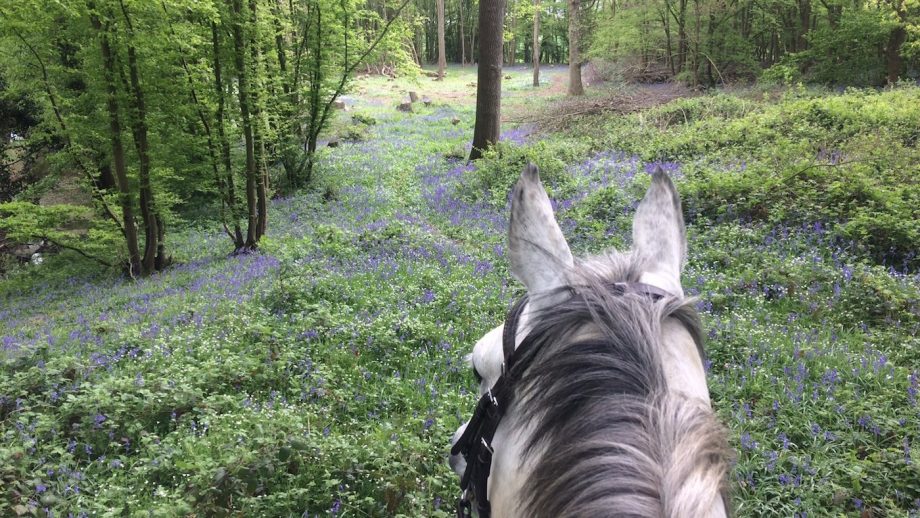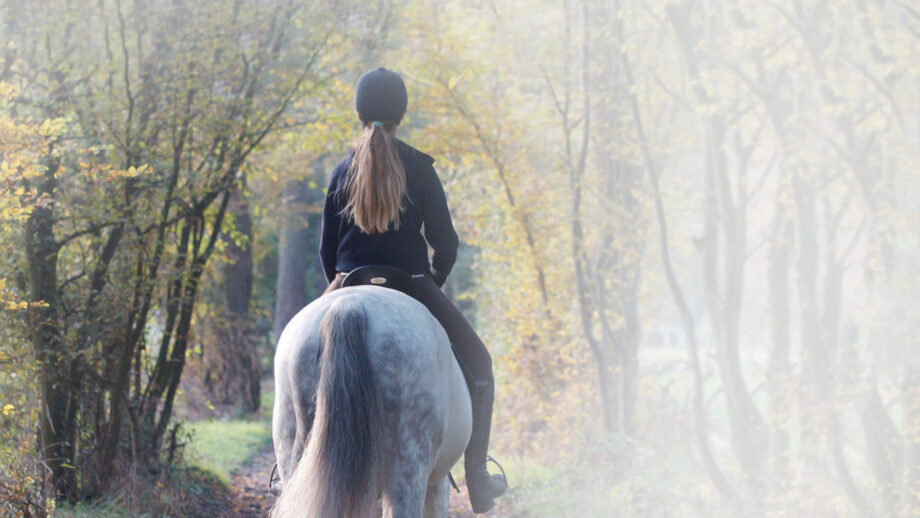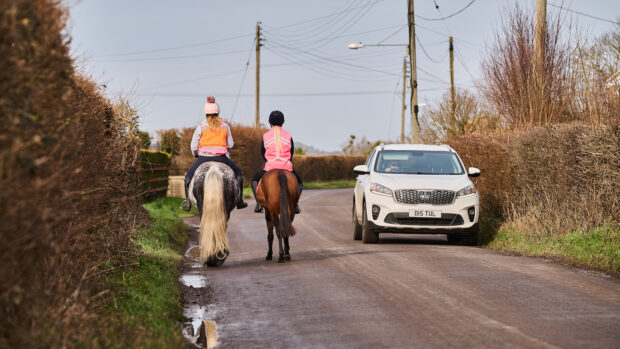Riders and carriage drivers are frustrated as they are unable to access woodland routes, after a hollow promise to “make riding accessible to more riders across the nation’s forests”.
H&H reported that equestrians had lost access to off-road parking at Abbot’s Wood and Friston Forest in East Sussex (news, 7 August). The move happened in May, when Forestry England scrapped the requirement for equestrians to have paid permits to ride in most woodlands, including those managed by third parties such as TROT (Toll Rides Off-Road Trust).
This followed a survey by Forestry England, supported by the British Horse Society (BHS), in 2023 as part of Forestry England’s review of its permit systems to “ensure protocols are fit for purpose”. In 2022, when early conversations were taking place between the BHS and Forestry England, BHS director of access Mark Weston told H&H the society opposed permits for publicly owned land where access for other users is free – and said there should be no “discrimination” against equestrians.
H&H has heard from a number of equestrians affected by Forestry England’s decision to withdraw off-road parking for horseboxes in many locations. Although one said the changes to Friston Forest are “excellent” and offer safe, off-road riding for all, most spoke of frustration and sadness that they are in effect excluded from using the woodlands, plus safety concerns about the lack of off-road parking.
The reactions were related to both woodlands mentioned in the initial article, and others.
Among these is Clowes Wood, Kent, where Sarah Claydon has ridden for more than 12 years. But the loss of parking means it is no longer a possibility as it is “too dangerous” to hack along that road.
“We are being pushed out,” she told H&H, adding that riders have tried to fight, but it is “like hitting a brick wall”.
She added that the reasoning given by Forestry England centred on health and safety, as those areas are used by forestry machinery, but she has never had or heard of a problem in the years she has been parking there.
H&H also understands that the loss of horsebox parking means equine community police volunteers can no longer access and patrol Clowes Wood, a loss to both riders and the wider public.
Rider Katie Blatchford has ridden in the area for 26 years and has seen a significant change in traffic on the roads in that time, to the point she will no longer ride on them.
She told H&H the horsebox parking at Clowes Wood is “much needed”.
“It’s not a huge woodland but it’s perfect for an hour or two out. It has a fully surfaced outer track, so can be used all year round without fear of churning up ground. Those of us who paid for our permits were more than happy to do so for safety,” she said.
“Losing the box parking is devastating. There is nowhere else to park safely to access the woods, and hacking there is not a safe option either.”
Canterbury city councillor James Flanagan, whose ward includes Clowes Wood, was contacted by riders when they learnt they would lose parking. He and riders have been in contact with Forestry England, including a Zoom meeting to highlight the need for horsebox parking, but to no avail. The issue has also been brought to the attention of the BHS and Canterbury MP Rosie Duffield.
Cllr Flanagan told H&H the public road leading to the woods is a busy single carriageway, and the entrance is on a sharp bend with limited visibility.
He said access to the deboxing area is “a safety issue” as it is “far too dangerous” to ride or walk a horse along the road, and that he has contacted – and will follow up with – Kent County Council’s highways team and Kent Police about the road safety aspect.
Permits are required for riding at Bramshill (which was communicated this spring), Warren Heath and Heath Warren in Hampshire, as this is a protected area. But Forestry England says it has issued 250 permits and “unfortunately will not be able to accommodate further requests for this year”.
At sites including Hemsted Forest, Bedgebury and King’s Wood, all in the south-east, information on the Forestry England website states that permits are not required for riding, but “due to a high volume of interest” it has temporarily paused all applications for de-boxing access while it puts a new system in place. Riders who previously held a TROT permit can continue to use it for parking for now.
H&H has also heard from carriage drivers facing access issues at a number of woodlands, which pre-date Forestry England’s actions this spring.
Roads are busier than ever. Department for Transport statistics show that annual traffic by motor vehicles increased from 261.9 billion miles/year in 1994 to 336.2 billion miles/year in 2024 – an increase of 74.3 billion miles/year. In 2024 alone, 58 horses died on Britain’s roads and more than 3,100 incidents were reported to the BHS, but the charity believes the number of incidents to be much higher.
Mr Weston told H&H in July that the BHS continues to “work with Forestry England to try to make sure that all equestrians can continue to get to, and safely use, these woodland sites”. He added that “this communication and collaborative work will carry on until we can hopefully find a solution that works for equestrians and Forestry England alike.”
A BHS spokesperson told H&H on 21 August that they are not in a place to share any further updates yet but that the collaborative work with Forestry England is a “key priority and ongoing”.
H&H has contacted Forestry England for comment.
Julie Chantler of TROT told H&H it is sad to hear of the loss of access. She said that the change has had a big impact on TROT membership numbers, and that the charity is “very much still going”, helping to provide other off-road routes to riders and carriage drivers.
“We had a good relationship with Forestry England, it worked well. Our members are responsible people, and they really appreciated the secure horsebox parking,” she said.
TROT membership also had benefits to both sides in other ways, including a simple way to contact all riders in advance should routes be closed at certain times owing to forestry operations, an emergency contact number, plus the knowledge that all members are required to have third-party liability insurance.
“We are actively looking to try and get more landowners on board. I’m hoping riders will get behind us and we would like to know of any farmers or land owners that would be interested in having riders on their land – we will happily try and work with you to get a route set up and some extra income for you,” she said.
- To stay up to date with all the breaking news from major shows throughout 2025, subscribe to the Horse & Hound website
You may also be interested in:

Equestrians baffled as scheme for woodland riding makes things worse

A ‘great step’ as almost 50 paid-for woodland riding permits axed

Subscribe to Horse & Hound magazine today – and enjoy unlimited website access all year round




